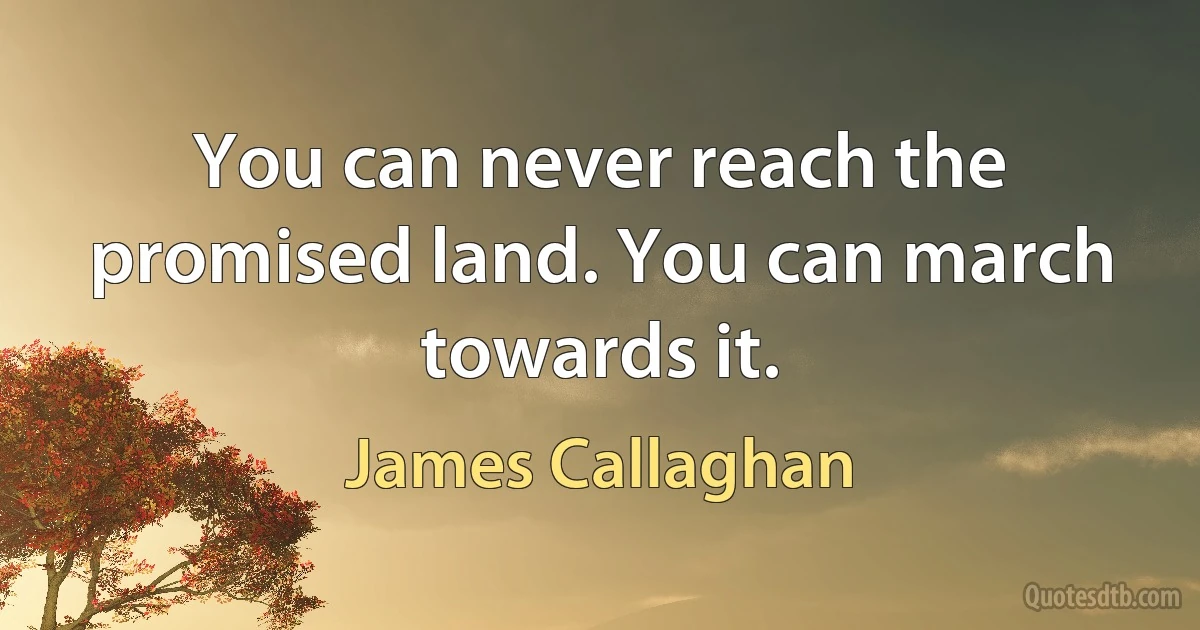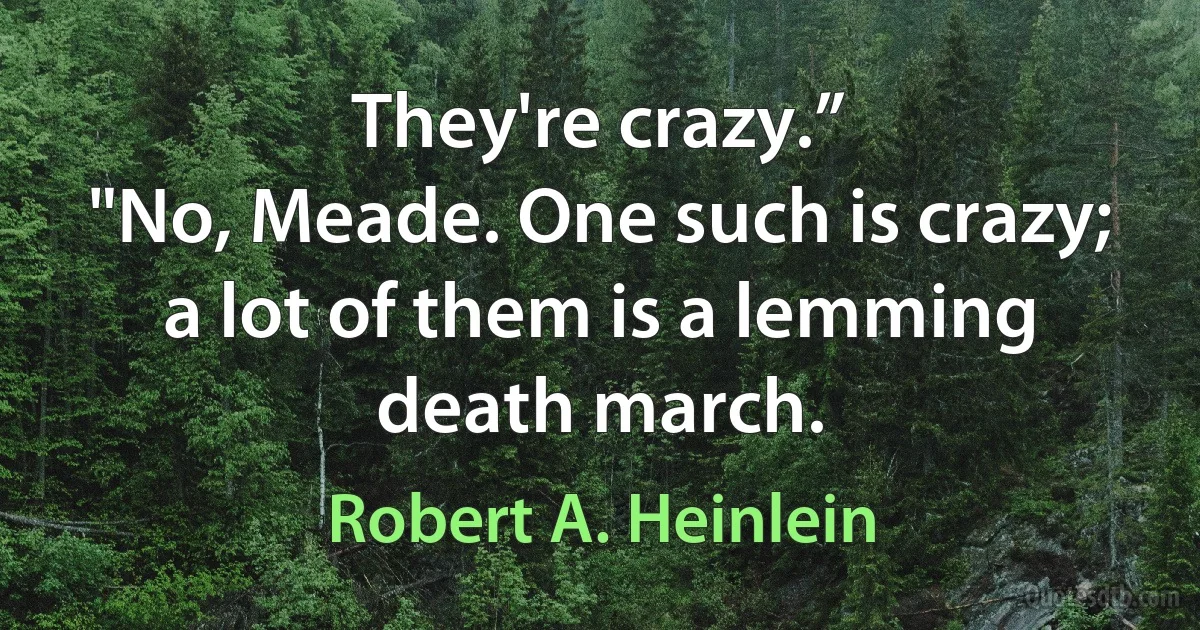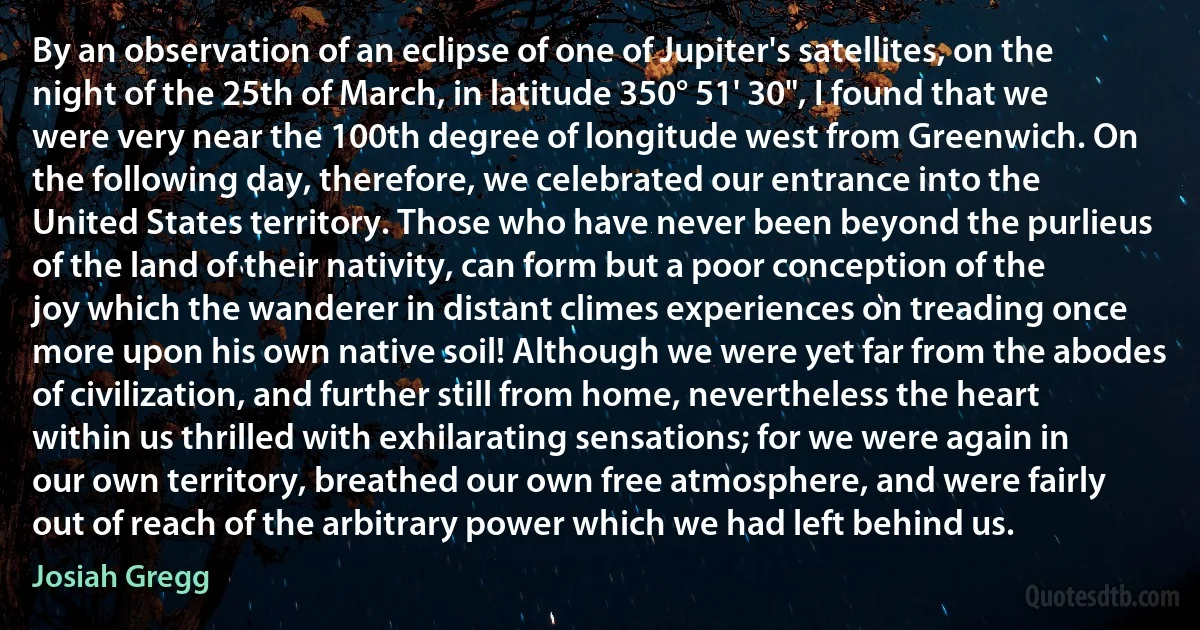March Quotes - page 26
We must preserve the right of free speech and the right of free assembly. But the right of free speech does not carry with it, as has been said, the right to holler fire in a crowded theater. We must preserve the right to free assembly, but free assembly does not carry with it the right to block public thoroughfares to traffic. We do have a right to protest, and a right to march under conditions that do not infringe the constitutional rights of our neighbors.

Lyndon B. Johnson
I supported President Obama when he called for a counterinsurgency plan in March, and I did so again when he deployed Gen. Stanley McChrystal to lead the command in Kabul. I agree with our commander's assessment of the security situation as "deteriorating" and that our civilian and military leaders urgently need more resources, including more combat troops, to turn the tide toward success. I sympathize with our president, because sending men and women into harm's way is the most difficult decision that a commander-in-chief must make. However, Americans are already serving in harm's way in Afghanistan, and the sooner we can provide the reinforcements and resources they need, the safer and more successful they will be. So I am urging President Obama to move as quickly as possible to fully support Gen. McChrystal's request for more troops.

John McCain
I spend a lot of time with the men and women who are serving in the military, including members of my own family, and they are not uninformed. They are very intelligent. They watch what we do--we, their elected representatives. Their voters trust us to defend them, care for them, to give them the weapons they need, the benefits they need, and the care they need when the wounded come back. They rely on us. They are going to see, as we watch Vladimir Putin on the march, as we watch the success of ISIS, as we watch Ukraine being dismembered, as we watch China commit more aggression in the South China Sea and fill in islands--and now? Now this Commander in Chief decides that this is a time to veto an authorization bill because he doesn't think there is enough domestic spending. It is a sad day, a very sad day. It is a sad day for America but most of all it is a very sad day for the men and women with whom we entrust our very lives and our security. It is a sad day.

John McCain
For the last 5 years, we have been writing a shameful chapter in American history. To sum all of this up, leading from behind doesn't work. If America leads from behind, somebody else is going to be in front. If the United States leaves conflicts and creates vacuums, then bad things happen. Look at a map of the Middle East in January of 2009, when this President came to the Presidency of the United States, and look at that map now--the way ISIS has metastasized, the way hundreds of thousands have been murdered and millions are on the march as refugees. We still have apologists for this leading from behind, a policy which is described as "Don't do stupid stuff." This is the result of leadership that has left the scene in a way that we have not seen since the 1930s, in the days of Neville Chamberlain and "peace in our time."

John McCain
The US imperialists ... are resorting to every conceivable scheme to stifle us. They are not only bringing political pressure and military threats to bear on us but also imposing economic sanctions. This is why our Party and people have had to undergo the Arduous March and suffer hardships.

Kim Jong-il
We know now that the basic proposition of the worth and dignity of man is not a sentimental aspiration or a vain hope or a piece of rhetoric. It is the strongest, most creative force now present in this world.
Now let us use that force and all our resources and all our skills in the great cause of a just and lasting peace!
The Three Great Powers are now more closely than ever bound together in determination to achieve that kind of peace. From Teheran, and the Crimea, from San Francisco and Berlin - we shall continue to march together to a lasting peace and a happy world!

Harry S. Truman
It is said that serious apprehensions are to some extent entertained (in which I do not share) that the peace of this District may be disturbed before the 4th of March next. In any event, it will be my duty to preserve it, and this duty shall be performed.
In conclusion it may be permitted to me to remark that I have often warned my countrymen of the dangers which now surround us. This may be the last time I shall refer to the subject officially. I feel that my duty has been faithfully, though it may be imperfectly, performed, and, whatever the result may be, I shall carry to my grave the consciousness that I at least meant well for my country.

James Buchanan
George Marshall may well have sighed at the results of the March 1945 poll- not at his own place but at MacArthur's. Marshall, more than most, knew the whole story of MacArthur's war. It is a mark of Marshall's own greatness that he so deftly managed MacArthur's fiery comet and unselfishly used its brilliance to accomplish the objectives of a global war.

Douglas MacArthur
The President of the United States of America, authorized by Act of Congress, July 9, 1918, takes pleasure in presenting the Distinguished Service Cross to Brigadier General (Corps of Engineers) Douglas MacArthur (ASN: 0-57), United States Army, for extraordinary heroism in action while serving as Chief of Staff, 42d Division, A.E.F., in the Salient-du-Feys, France, 9 March 1918. When Company D, 168th Infantry, was under severe attack in the salient du Feys, France, General MacArthur voluntarily joined it, upon finding that he could do so without interfering with his normal duties, and by his coolness and conspicuous courage aided materially in its success.

Douglas MacArthur
I will instruct the minister of war to strengthen the Gendarmerie in Brussels, to recognize the addresses and customs of the demagogues and to try to find out what is coming up, I am told that the demonstrations which are only intended as intimidation and as preparation in an unguarded moment are able to turn into something else, once they have everyone on the street they will attack the government, what measure have you taken to face such a surprise attack? Do the regiments have been ordered to march on their own accord to the Rue de la Loi and the Boulvard, where in the summer it is more difficult to summon soldiers, will they be more satisfied now, working in the open air is now impossible, if I were you I wouldn't hesitate for a minute to summon them, the responsibility is too great, you are not protected from an incident, and you will have to face a formidable riot, all yours leopold.

Leopold II of Belgium
He would be, of course, announcing his candidacy for the Presidency. And that is an event that would send shivers of joy, dread, anger and ecstasy throughout the country like nothing since, well ... like nothing since Robert Kennedy's declaration on March 16, 1968. Except that this time feelings would run higher still. Even the Kennedy haters, and those who long ago dismissed this youngest of the Kennedy brothers as a talentless trader on family reputation, and those, too, who crossed him off after Chappaquiddick, could not help but be stirred by the realization that the curtain was being raised on the final act of an incredible American epic.

Ted Kennedy
The Prussian Junker is the road hog of Europe. Small nationalities in his way hurled to the roadside, bleeding and broken; women and children crushed under the wheels of his cruel car; Britain ordered out of his road. All I can say is this. If the old British spirit is alive in British hearts that bully will be torn from his seat. Were he to win it would be the greatest catastrophe that befell democracy since the days of the Holy Alliance and its ascendancy. They think we cannot beat them. It will not be easy. It will be a long job. It will be a terrible war. But in the end we shall march through terror to triumph.

David Lloyd George
He was twice married, the first time to Miss Dolores Otero, daughter of Judge Antonio José Otero and his wife, Chaves de Otero. This happy union occurred March 15, 1851; from it eighteen children were born, many dying in early infancy. ...Mrs. Perea died in 1866. He was again married to Miss Gabriela Montoya, the daughter of Gerónimo Montoya and Lupita Perea de Montoya... The marriage occurred in 1875, and of which... eighteen children were born, ten of whom survive their father.

Francisco Perea
Not a May-game is this man's life; but a battle and a march, a warfare with principalities and powers. No idle promenade through fragrant orange-groves and green flowery spaces, waited on by the choral Muses and the rosy Hours: it is a stern pilgrimage through burning sandy solitudes, through regions of thick-ribbed ice. He walks among men; loves men, with inexpressible soft pity,-as they cannot love him: but his soul dwells in solitude, in the uttermost parts of Creation. In green oases by the palm-tree wells, he rests a space; but anon he has to journey forward, escorted by the Terrors and the Splendours, the Archdemons and Archangels. All Heaven, all Pandemonium are his escort. The stars keen-glancing, from the Immensities, send tidings to him; the graves, silent with their dead, from the Eternities. Deep calls for him unto Deep.

Thomas Carlyle
After the March to Finchley, the next print I engraved, was the Roast Reef of old England; which took its rise from a visit I paid to France the preceding year. The first time an Englishman goes from Dover to Calais, he must be struck with the different face of things at so little a distance. A farcical pomp of war, pompous parade of religion, and much bustle with very little business. To sum up all, poverty, slavery, and innate insolence, covered with an affectation of politeness, give you even here a true picture of the manners of the whole nation... By the fat friar, who stops the lean cook that is sinking under the weight of a vast sirloin of beef, and two of the military bearing off a great kettle of soup maigre, I meant to display to my own countrymen the striking difference between the food, priests, soldiers, &c. of two nations so contiguous, that in a clear day one coast may be seen from the other.

William Hogarth
But now, in March 2018, Putin was declaring that the US effort had failed. He unveiled the existence of five new nuclear weapons, all of which could circumvent US missile-defense systems. He concluded defiantly, "I hope everything that has been said today will sober any potential aggressor,” adding, "No one listened to us. Listen to us now.”.

Oliver Stone
Hayek died in Freiburg, Germany, on March 23, 1992, less than two months shy of his ninety-third birthday. After 1985, he was unable to work and lost contact with almost all friends and associates. In his last years, almost the only people with whom he had regular contact were his wife, Helene; secretary Charlotte Cubitt, whom he always called "Mrs. Cubitt”; children Larry and Christine Hayek; and Bartley. Hayek was grateful to Cubitt for her assistance from 1977 to 1992. He inscribed in her copy of The Fatal Conceit in 1990: "In gratitude for all her help over so many years F. A. Hayek.”
During his last years, he had periods of more and less lucidity, as well as being ill and depressed. Lord Harris of the Institute of Economic Affairs wrote in his obituary of Hayek that "by 1989 the great man had lost touch with affairs.” He was buried in Vienna, the place of his birth.
[...] Friedrich Hayek was the greatest political philosopher of liberty during the twentieth century.

Alan O. Ebenstein



